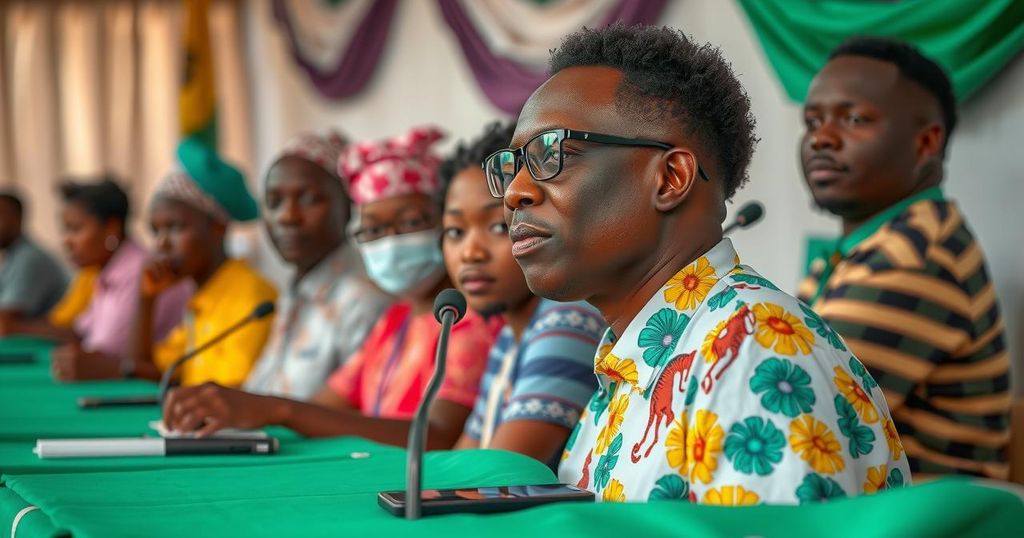Ghana’s Elections: A Testament to Democratic Progress in Africa

The recent elections in Ghana exemplified free and fair democratic practices in Africa, with former President John Mahama of the NDC winning against Vice President Mahamudu Bawumia. The peaceful election had no major incidents, receiving commendation from international observers. This event highlights Ghana’s ongoing legacy of democratic elections, reinforcing hope for political stability across Africa.
The recent presidential and parliamentary elections held in Ghana on December 7, 2024, have sent a powerful message to the African continent: elections can be conducted fairly and peacefully. Ghanaians demonstrated their commitment to democratic principles by participating in an election deemed crucial for the nation’s future. The election resulted in significant victories for former President John Mahama of the National Democratic Congress (NDC), who secured 56.55% of the votes against the incumbent Vice President Mahamudu Bawumia of the New Patriotic Party (NPP), who received 41.61%. Remarkably, Bawumia conceded defeat ahead of the official announcement, showcasing a commendable spirit of sportsmanship and respect for electoral outcomes.
The NDC also performed strongly in the parliamentary elections, winning 187 out of 276 seats, further solidifying their majority. The elections unfolded in a notably peaceful environment, absent of major incidents throughout the campaigning period and the vote. Observers from prominent organizations such as ECOWAS, the Commonwealth, and the European Union praised Ghana’s electoral process, highlighting its integrity and alignment with the democratic will of the people.
This successful election in Ghana follows other democratic transitions in Africa, including recent elections in Botswana and Senegal, where power was transferred peacefully away from incumbent leaders. Ghana’s legacy of democratic elections is long-standing; notably, Mahama himself experienced electoral defeat in both 2016 and 2020. The current election results reflect the electorate’s desire for accountability, particularly in light of economic challenges faced by the nation.
Daily Trust commends both the victors and their opponents, emphasizing the importance of accountability and delivery on campaign promises in governance. The peaceful exercise of democratic rights by Ghanaians stands as a beacon of hope for Africa, illustrating the capability of African nations to conduct democratic elections free from external influence. Ghanaians have once again proven their dedication to preserving electoral integrity and fostering political stability. Furthermore, the efficiency of Ghana’s electoral commission should serve as a model for other African nations, reinforcing the notion that democracy is achievable across the continent.
Ghana has emerged as a leading example of democratic governance in Africa, revealing that free and fair elections are possible even amid various challenges. The achievements of Ghana in maintaining a stable electoral process have implications for the broader narrative of political development in Africa, which has often been marred by conflicts and election-related violence. Observers have noted that peaceful transitions of power are essential for the continent’s progress and can serve as inspiration for other nations grappling with similar issues. The recent elections reinforce the idea that electoral accountability and the integrity of democratic institutions are fundamentally linked to national stability and development.
In conclusion, the December 2024 elections in Ghana represent a crucial step forward for democratic governance in Africa. The successful election process, marked by peaceful participation and acceptance of electoral outcomes, instills hope that other nations can follow suit. Daily Trust congratulates the citizens of Ghana for their commitment to democracy and calls for all elected leaders to deliver on their promises, thereby ensuring the continued progress of the nation. The peaceful outcome has underscored the importance of respecting the electorate’s wishes, fostering a political culture that prioritizes accountability and democratic values, which are vital for the overall development of Africa.
Original Source: dailytrust.com







